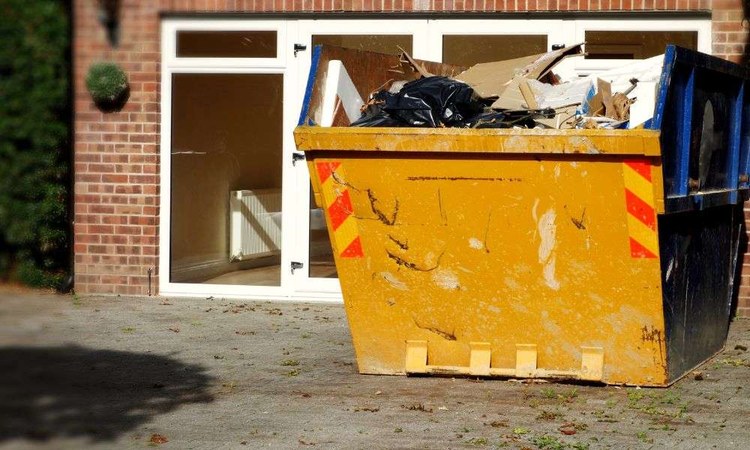Dumpster Rental: A Comprehensive Guide to Managing Waste Efficiently
Renting a dumpster is an effective solution for managing large amounts of waste during various projects, from home renovations to construction sites. This versatile service provides a convenient and cost-effective way to dispose of debris, ensuring a clean and organized work environment. Understanding the ins and outs of dumpster rental can help you make informed decisions and streamline your waste management process.

What are the different types of dumpsters available for rent?
Dumpsters come in various sizes and configurations to accommodate different project needs. The most common types include:
-
Roll-off dumpsters: These are the most popular for residential and commercial use, featuring an open-top design and wheels for easy transportation.
-
Front-load dumpsters: Typically used for ongoing commercial waste management, these containers are regularly emptied by garbage trucks.
-
Rear-load dumpsters: Smaller than front-load dumpsters, these are often used for residential or small business waste collection.
-
Specialized dumpsters: Some rental companies offer containers designed for specific materials like concrete, yard waste, or recyclables.
What factors should you consider when choosing a dumpster size?
Selecting the right dumpster size is crucial for efficient waste management and cost-effectiveness. Consider the following factors:
-
Project scope: Estimate the volume of waste you’ll generate based on your project type and scale.
-
Available space: Ensure you have enough room on your property to accommodate the dumpster without obstructing traffic or violating local regulations.
-
Weight limits: Different dumpster sizes have varying weight capacities, so consider the density of your waste materials.
-
Rental duration: If you need the dumpster for an extended period, a larger size might be more economical than multiple rentals of smaller containers.
-
Local regulations: Some areas have restrictions on dumpster sizes or placement, so check with your local authorities.
What materials can be disposed of in a rented dumpster?
While dumpsters can accommodate a wide range of materials, it’s essential to understand what is and isn’t allowed. Generally acceptable items include:
-
Construction debris (wood, drywall, concrete)
-
Household junk and furniture
-
Yard waste
-
Appliances (in some cases)
Materials typically prohibited in dumpsters include:
-
Hazardous waste (chemicals, paint, batteries)
-
Electronics
-
Tires
-
Asbestos
-
Flammable or explosive materials
Always consult with your rental company for specific guidelines, as regulations may vary by location and provider.
How much does dumpster rental typically cost?
The cost of renting a dumpster can vary significantly based on several factors, including location, dumpster size, rental duration, and disposal fees. Here’s a general overview of pricing structures and factors that influence costs:
| Dumpster Size | Typical Rental Duration | Average Cost Range |
|---|---|---|
| 10-yard | 7-10 days | $300 - $500 |
| 20-yard | 7-10 days | $350 - $600 |
| 30-yard | 7-10 days | $400 - $700 |
| 40-yard | 7-10 days | $450 - $800 |
Prices, rates, or cost estimates mentioned in this article are based on the latest available information but may change over time. Independent research is advised before making financial decisions.
Additional costs to consider:
-
Overage fees: Charges for exceeding weight limits or rental periods
-
Permit fees: Some areas require permits for dumpster placement on public property
-
Disposal fees: Costs associated with dumping waste at landfills or recycling centers
-
Specialized material fees: Extra charges for disposing of certain types of waste
To get the best value, compare quotes from multiple providers and inquire about any potential additional fees before booking.
How can you maximize the efficiency of your dumpster rental?
To make the most of your dumpster rental and potentially save money, consider these tips:
-
Plan your project carefully to accurately estimate the required dumpster size and rental duration.
-
Load the dumpster strategically, breaking down large items and filling gaps to maximize space.
-
Separate recyclable materials when possible to reduce disposal fees and environmental impact.
-
Be aware of weight limits and avoid overloading the dumpster, which can result in additional charges.
-
Keep the area around the dumpster clear for easy access during pickup.
-
Communicate with your rental provider about any changes in your project timeline or waste volume.
By understanding the ins and outs of dumpster rental, you can efficiently manage waste for your project while staying within budget and complying with local regulations. Whether you’re undertaking a home renovation, managing a construction site, or coordinating a community cleanup, renting a dumpster provides a convenient and effective solution for large-scale waste disposal.






